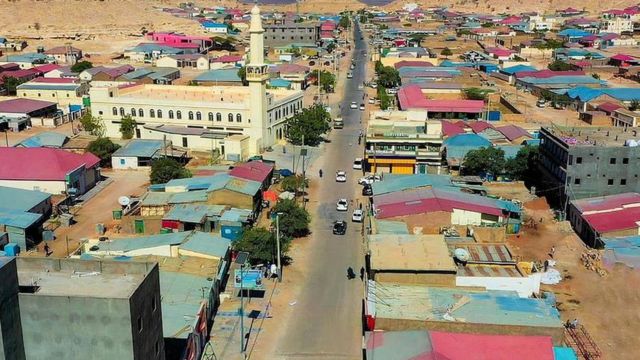Amnesty International calls for probe into Las’anod fighting amid heavy toll on civilians

GOOBJOOG NEWS | LAS’ANOD: The campaign group Amnesty International has called for an urgent investigation into the killings in Las’anod as the fighting there enters the 10th week.
Amnesty International has accused the Somaliland security forces of indiscriminately shelling the town, damaging hospitals, schools and mosques, killing and injuring civilians, and displacing tens of thousands of people.
“All parties to the conflict in Las’anod must end indiscriminate attacks, commit to protect civilians and respect the rules of international humanitarian law. Hospitals and ambulances should never be targeted. There must be an independent investigation into all human rights and humanitarian law violations to ensure accountability for those responsible and reparation for victims,” said Tigere Chagutah, Amnesty International’s Regional Director for East and Southern Africa.
Humanitarian groups estimate that between 154,000 to 203000 people have been displaced to neighboring towns and villages while others have crossed over to Ethiopia adding that the displaced persons are in dire need of humanitarian assistance.
“This humanitarian crisis is compounded by the effects of the ongoing, devastating drought in the region. All parties must allow and facilitate humanitarian organizations’ unfettered access to civilians in need of assistance in Las’anod and other affected areas,” said Tigere Chagutah.
Amnesty international says that among the civilians killed were women, children, older people with health conditions, and healthcare workers.
“They were mostly killed during indiscriminate attacks involving rockets, mortars, and other explosive weapons with wide area effects, which should never be used in populated areas.”
Adding, “In dense urban settings, many unguided explosive weapons, such as the inherently inaccurate 107mm rockets, are too imprecise to distinguish between military objectives, civilians, and civilian objects. Their use in such circumstances violates the prohibition in international humanitarian law of indiscriminate attacks.”
Five doctors interviewed by Amnesty International said that most of the people they treated had bullet wounds and other injuries caused by shrapnel from rockets, and that dozens of injured people were transferred to hospitals in Garowe and Mogadishu.
Indiscriminate attacks
According to witnesses indiscriminate attacks allegedly by Somaliland forces had caused significant damage to the town’s infrastructure.
Amnesty International noted that Somaliland forces were initially based in the Eastern and Western outskirts of the city, while armed fighters affiliated with the Dhulbahante clan were mostly within the city and that most attacks were coming from the eastern side.
“The Las Anod general hospital has been hit at least four times since the fighting started causing partial damage to the structure and bringing a stop to activities in the pediatric ward and the blood bank,” witnesses said.
Humanitarian crisis
Humanitarian groups have raised concerns that the displaced communities are living in dire conditions with inadequate housing and scarce medical supplies and that they are also subject to movement restrictions for safety reasons and are facing heightened eviction risks.
An estimated 89 percent of those displaced are women and children.
According to the latest Integrated Food Security Phase Classification (IPC), the new wave of displacement comes at a time when about 214,000 people in the Sool region are experiencing crisis or acute food insecurity due to severe drought, compounding the hardship experienced by those displaced by the conflict.
Somaliland authorities however say that they are committed to providing basic necessities including food, water and medical equipment to the people of Las Anod in coordination with local and international humanitarian organizations.
However, three humanitarian aid workers interviewed by Amnesty International said that humanitarian access to Las’anod is a major challenge due to the widespread violence and some restrictions from authorities.